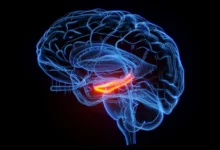Why More People Are Struggling with Gut Issues After COVID
New Data Shows Rising Rates of Ibs and Functional Dyspepsia, Especially Among Long Covid Patients

A large-scale U.S. study has confirmed a significant rise in gut-brain disorders post COVID, with individuals experiencing long COVID showing particularly high rates. Published in Clinical Gastroenterology and Hepatology, the study used validated tools to compare pre- and post-pandemic data, revealing a marked increase in both gastrointestinal (GI) and psychological symptoms.
Researchers analyzed nationally representative data sets from 2017 and 2023 using Rome Foundation criteria, which are the global standard for diagnosing disorders of gut-brain interaction (DGBIs). These disorders include common but often misunderstood conditions like irritable bowel syndrome (IBS) and functional dyspepsia.
Sharp Increases in IBS and Functional Dyspepsia

The study found that disorders of gut-brain interaction became more common after the pandemic. In 2017, about 38% of people were affected, but by 2023, that number had grown to over 42%. Cases of irritable bowel syndrome (IBS) went up by 28%, increasing from 4.7% to 6%. Functional dyspepsia—a condition that causes ongoing discomfort in the upper stomach without a clear cause—rose even more sharply, jumping nearly 44% from 8.3% to 11.9%.
While these conditions are not new, the increase in their prevalence following the COVID-19 pandemic highlights a concerning trend. Researchers say the data provides the first direct, population-level evidence of how the pandemic has affected gut-brain health.
Long COVID Patients Most Affected
The study also found that individuals with long COVID—persistent symptoms lasting weeks or months after the initial infection—were significantly more likely to report gut-brain disorders. These patients also had higher levels of anxiety and depression and reported a lower overall quality of life.
This connection between long COVID and DGBIs supports previous hypotheses about the long-term effects of SARS-CoV-2 on the gut-brain axis. The virus is known to impact both the gastrointestinal system and the central nervous system, and researchers suggest these effects may persist long after the acute infection resolves.
Why the Gut-Brain Axis Matters
Disorders of gut-brain interaction happen when the signals between the digestive system and the brain don’t work properly, leading to ongoing gut symptoms without a clear physical cause. This can lead to chronic symptoms such as pain, bloating, irregular bowel movements, and nausea, without detectable physical abnormalities. These conditions are often linked with psychological factors like stress, anxiety, and depression.
The Rome Foundation criteria used in the study allow for precise diagnosis based on symptom patterns and have helped move these disorders out of the realm of “medically unexplained” and into evidence-based care.
A Call for Updated Care Models
The findings underline the need to adapt healthcare approaches in the post-pandemic era. Experts are calling for integrated treatment strategies that address both the physical and psychological aspects of gut-brain disorders.
“The data reinforces that long COVID is not just about fatigue or respiratory symptoms,” the researchers note. “It has lasting consequences for gastrointestinal and mental health.”
They also stress the importance of further research into how COVID-19 alters gut-brain signaling and why some individuals are more vulnerable to long-term effects.
[Source]








